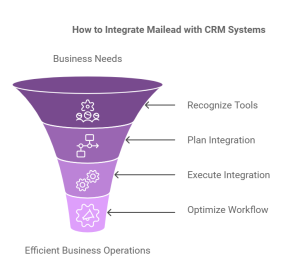Starting my first website, I found myself drowning in a sea of hosting options, unsure of what to choose. I knew I had to choose between shared and VPS hosting, but it felt like a daunting task.
Shared hosting seemed affordable and beginner-friendly, while VPS hosting promised better performance and control. Both options had their benefits, but how could I know which one was right for me? If you’re in the same boat, don’t worry—you’re not alone. Let’s start the world of hosting and figure out what works best for your needs.
Shared hosting and VPS hosting are two of the most common choices for website owners. Shared hosting is ideal for beginners and those on a tight budget, while VPS hosting offers more power and flexibility for growing websites.

Table of Contents
ToggleWhat Is Shared Hosting?
Shared hosting is like renting a bed in a dormitory. You share the same room (server) with others. This means your website shares resources like CPU, RAM, and storage with other websites. While this setup is cost-effective, it has some limitations, especially for websites that expect to grow.
Key Features of Shared Hosting
- Affordable: Prices often start as low as $2 to $10 per month, making it ideal for those on a tight budget. Even small business owners and hobbyists can afford this option.
- Beginner-Friendly: Most shared hosting plans come with easy tools like one-click installers for WordPress and other platforms, making it simple for beginners to get started.
- Limited Resources: Your site’s speed might slow down if another site on the server gets too much traffic. This can be frustrating, especially if your site starts gaining traction.
- Managed by the Host: The hosting provider takes care of server maintenance, so you don’t need any technical knowledge.
When I started my first blog, I chose shared hosting. It was cheap and easy to set up. However, as my traffic grew, I noticed the site became slow, especially during peak hours. This slowdown was because other sites on the same server were using too many resources. It worked well for a while, but eventually, I had to upgrade.
What Is VPS Hosting?
VPS hosting is like renting an apartment. You have your own private space, and you don’t have to share resources with others. A VPS uses virtualization technology to divide a physical server into smaller, private servers. This gives you more control and better performance.
Key Features of VPS Hosting
- More Power: You get dedicated resources like RAM and CPU. This means your site’s performance isn’t affected by other users.
- Better Performance: Your site runs smoothly even during traffic spikes, making it a reliable option for growing businesses.
- Higher Cost: Plans usually start around $20 to $60 per month. While it’s more expensive than shared hosting, the performance benefits often justify the cost.
- More Control: You can customize the server settings to suit your specific needs, such as installing custom software or changing configurations.
- Scalable: If your website traffic increases, you can easily upgrade your VPS plan without downtime.
When my blog started getting thousands of visitors daily, I upgraded to VPS hosting. The difference was night and day. The site loaded faster and handled large traffic without issues, and my audience appreciated the improved experience. It was worth the extra cost because my revenue also increased with better user engagement.

Shared vs VPS Hosting: A Comparison
Here’s a detailed side-by-side comparison to help you decide:
| Feature | Shared Hosting | VPS Hosting |
|---|---|---|
| Cost | $2 – $10/month | $20 – $60/month |
| Performance | Slower, depends on other users | Faster, dedicated resources |
| Security | Basic, shared vulnerabilities | Advanced, isolated environment |
| Control | Limited customization | Full control over server settings |
| Best For | Beginners, small websites | Growing websites, e-commerce |
With shared hosting, you save money, but you also share risks. If another site on your server gets hacked, your site could be affected. VPS hosting, on the other hand, provides an isolated environment, reducing such risks.
Pros and Cons
Shared Hosting Pros:
- Affordable: Perfect for tight budgets, especially for personal blogs or small sites.
- Simple to Use: No technical skills required, making it accessible for beginners.
- Pre-installed Features: Comes with basic tools like control panels and email hosting.
Shared Hosting Cons:
- Slow Performance: Traffic spikes on other websites can slow your site down.
- Limited Resources: Not ideal for websites with heavy traffic or resource-intensive applications.
- Less Secure: Sharing a server increases the risk of vulnerabilities.
VPS Hosting Pros:
- Faster Speed: Dedicated resources significantly improve performance and load times.
- Customizable: You can install specific software and configure the server as you like.
- Scalable: Easily handle growing traffic by upgrading your resources.
- Better Uptime: With isolated resources, your site is less likely to face downtime.
VPS Hosting Cons:
- Higher Cost: Not suitable for tight budgets, especially for hobby projects.
- Requires Knowledge: Some technical skills are needed to manage the server, although managed VPS plans can help.
- More Responsibility: You’re responsible for updates and backups unless you choose a managed plan.
Market Trends
Shared hosting became popular in the 1990s, as it made website hosting affordable for everyone. It was a revolutionary step that allowed individuals and small businesses to establish an online presence without spending a fortune. Today, shared hosting still dominates the market due to its low cost and simplicity.
VPS hosting gained traction in the early 2000s with advancements in virtualization technology. This technology allowed hosting providers to offer private server environments at a fraction of the cost of dedicated servers. It’s now a top choice for businesses and serious bloggers needing reliability, scalability, and control.
As of 2025, 60% of websites use shared hosting, while about 25% opt for VPS hosting. Dedicated servers and cloud hosting make up the rest. This shows that while shared hosting remains the go-to choice for beginners, VPS hosting is growing in popularity as more people prioritize performance and security.

Which One Should You Choose?
Choose Shared Hosting If:
- You’re a beginner starting a personal blog, portfolio, or small website.
- You want the cheapest option and don’t mind sharing resources.
- You don’t expect a lot of traffic soon.
- You prefer a simple setup without technical complexities.
Choose VPS Hosting If:
- Your website gets medium to high traffic and needs consistent performance.
- You run an e-commerce site or handle sensitive data like customer information.
- You need faster load times to improve user experience and SEO rankings.
- You require better security and don’t want to share vulnerabilities with others.
Imagine you’re opening a small online store. At first, you use shared hosting to save money. It works well for the first few months as you’re building your site and getting a few visitors. But as your store grows and you start running promotions, you notice that the site becomes slow during sales. Customers complain, and you lose some sales.
That’s when you decide to upgrade to VPS hosting. The switch makes your site faster, handles the increased traffic without issues, and improves customer satisfaction. This change boosts your revenue and helps your business grow.

Frequently Asked Questions About Shared vs VPS Hosting
What is the main difference between shared hosting and VPS hosting?
Shared hosting involves sharing server resources with multiple websites, while VPS hosting provides dedicated resources within a virtual environment.
Is shared hosting good for e-commerce websites?
Shared hosting can work for small e-commerce sites, but as traffic grows, VPS hosting is better due to enhanced performance and security.
Do I need technical skills to use VPS hosting?
Basic knowledge is helpful for unmanaged VPS plans but managed VPS hosting takes care of technical tasks for you.
Can I switch from shared hosting to VPS hosting later?
Yes, most hosting providers allow easy upgrades to VPS hosting as your website grows.
How does VPS hosting improve website performance?
VPS hosting provides dedicated resources like CPU and RAM, ensuring consistent speed and reliability even during traffic spikes.
Final Thoughts
Choosing between shared and VPS hosting depends on your website’s needs and budget. Think of it as choosing between a dormitory and an apartment. Both have their pros and cons, but the right choice depends on your specific situation. Ask yourself:
- Do I need a budget-friendly option for a small site?
- Will my site grow quickly, requiring more resources?
- How important are speed, security, and customization to me?
Making the right choice will set your website up for success. Hosting might seem complicated at first, but with a little research, you’ll make the right decision. What do you think? Will you go for shared hosting or VPS hosting? Share your thoughts below!
Need Help? If you’re still unsure, feel free to ask questions. Hosting can feel tricky, but with the right guidance, you’ll make the perfect choice.
Happy hosting!
This post contains affiliate links. I may earn a commission if you make a purchase through them, at no extra cost to you.







